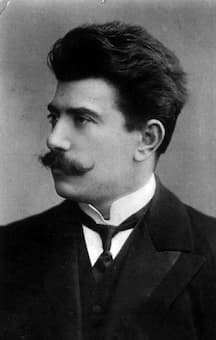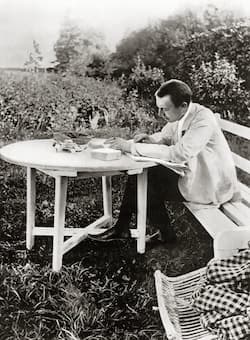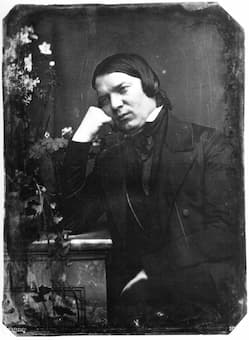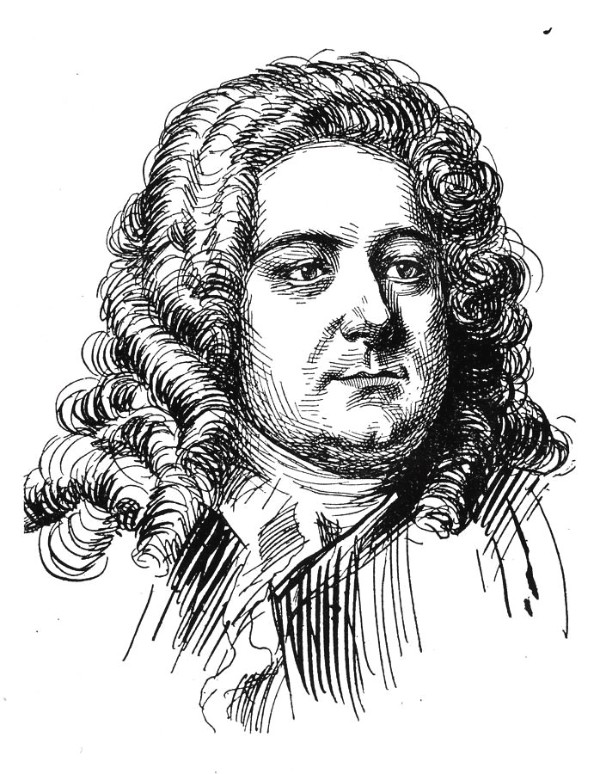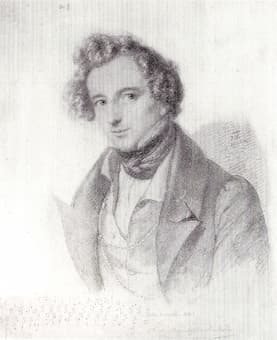
Felix Mendelssohn
I am always surprised how many different characteristic and emotions can be associated with a single key. Written by critics and theorist over time, some of these characteristics don’t seem to agree at all. When we look at the key of G minor we find a “key suitable for sweetness and tenderness.” At the same time, different writers consider it “serious and magnificent.” Others, describe G minor as the key of “discontent and uneasiness; a bad-tempered gnashing of teeth that represents resentment and dislike.” I guess, G minor is considered an ambivalent key, as it “sometimes expresses sadness but also quiet and sedate joy; a gentle grace with a slight touch of dreamy melancholy and occasionally it rises to a romantic elevations.” G minor sounds like a fantastic key, and here are my personal best songs in that key.
Mendelssohn: Piano Concerto No. 1 in G minor
I am not sure Mendelssohn ever did much grinding of the teeth, but if he did, it was definitely short-lived. For some reason, many of his minor key songs are not resentful at all, but seem rather sentimental, full of passion and sweetness. And his 1st piano concerto is one of my all-time favourite songs in G minor.
Mozart: Symphony No. 40, K. 550 in G minor
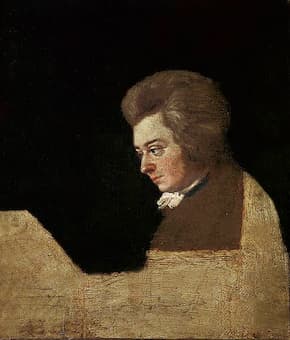
Wolfgang Amadeus Mozart
Wolfgang Amadeus Mozart really loved the key of G minor. Critics and writers have suggested, “Mozart best expressed sadness and tragedy in that key, and that a good many of his minor key works are in G minor.” I suppose, this is particularly true of his symphonies as G minor is the only minor key among his numbered symphonic works. It is possible that the novels of Goethe and Schiller and an “aesthetic of irrational emotionality” influenced Mozart. In literature, this is called “Storm and Urge,” and it transferred to the world of music as well. “Commonly associated with compositions in the minor key, composers attempted to convey a deeply emotional and agitated character. Angular musical themes, a multiplicity of constantly changing and nervous rhythmic patterns and rapid and unpredictable changes in tempo and dynamic levels became the characteristic hallmarks of this new musical style.” Both of Mozart’s minor-key symphonies are in the key of G minor, and the most famous Symphony No. 40 is without doubt, one of the best songs ever in that particular key.
Rachmaninoff: Trio élégiaque No. 1 in G minor
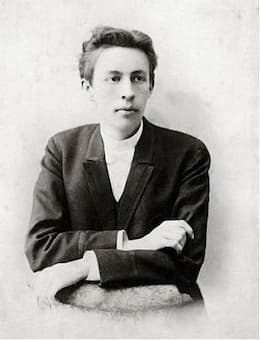
Sergei Rachmaninoff as a student
Sergei Rachmaninoff was only 19 when he was asked to provide a chamber work for an upcoming student recital. Amazingly, he only took three days to compose a Trio in G minor. That trio was performed in Moscow at the end of January 1892 with the composer at the piano. It’s still a bit of a mystery however, why the young composer wrote a musical funeral oration with this first Trio élégiaque. His second Trio élégiaque was composed the following year and is connected to the death of his idol Pyotr Ilyich Tchaikovsky. His first effort in G minor is highly expressive and is centered on a very mournful theme. It almost sounds like a deeply felt vocal line full of melancholy. There is plenty of lyricism and a colorful harmonic language, and it all ends in a funeral march. What a song to write at the tender age of 19, but to Rachmaninoff, the key of G minor does seem to express uneasiness, sadness, resentment and possibly even a “gnashing of teeth.” For sure, Rachmaninoff is carrying his heart on a sleeve, and this is one of the best songs in G minor for me.
Sergei Rachmaninoff: Trio élégiaque No. 1 in G minor (Beaux Arts Trio)
Allegri: Miserere mei
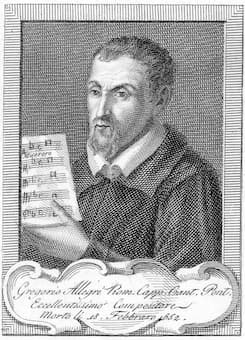
Gregorio Allegri
My favourite Mozart anecdote dates from 1770, and the time the 14-year old prodigy visited the city of Rome. Mozart just loved the city, and specifically the basilica of St. Peter. He went to a church service during the days of Easter at the Vatican with his father, and he listened carefully to a performance of a lengthy choral work for five voices. The work apparently made such an impression on the young genius that he went to his lodging and wrote down the entire piece from memory. Young Mozart went back a couple of days later to listen to the piece once more, and to make a couple of corrections. Amazing, isn’t it?

Basilica of St. Peter
A singer by the name of Gregorio Allegri in the Sistine Chapel had originally composed this choral masterwork, and the Pope forbade anyone from transcribing it. The Pope wanted to keep the music a secret, and it was only performed during Easter time. His plan worked for over 100 years before young Mozart let the cat out of the sack. I don’t know if this anecdote is actually true, but it’s certainly a good story. But it’s great music, and also one of the best songs in G minor.
Brahms: Piano Quartet No. 1 in G minor
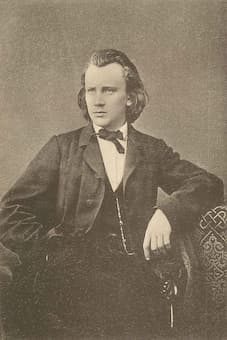
Johannes Brahms
Brahms was not yet 30 years of age when he went through a serious mid-life crisis. He became engaged to Agathe von Siebold in 1859, but that engagement quickly ended. Brahms continued to write her glowing love letters, “I love you! I must see you again, but I am incapable of bearing fetters. Please write me… whether… I may come again to clasp you in my arms, to kiss you, and tell you that I love you.” That sounds pretty serious to me, but they never saw each other again.

Agathe von Siebold
Things were also not going great on the professional side as he had applied for the conductorship of the Hamburg Philharmonic in 1862, but the post was awarded to the singer Julius Stockhausen. Brahms needed a change of scenery, so he decided to visit Vienna. Once he had arrived, he introduced himself to the Viennese public as a composer and performer on 16 November 1862 with his Piano Quartet in G minor. He had written that piece one year earlier, and the world premiere in Hamburg had featured the pianist Clara Schumann. Clara did not like the unconventional way Brahms changed between “musical keys to develop contrasting sounds and create tension.” Viennese audiences, however, loved it, and it is one of my all-time favourite songs in G minor. What is your favourite?
For more of the best in classical music, sign up to our E-Newsletter

